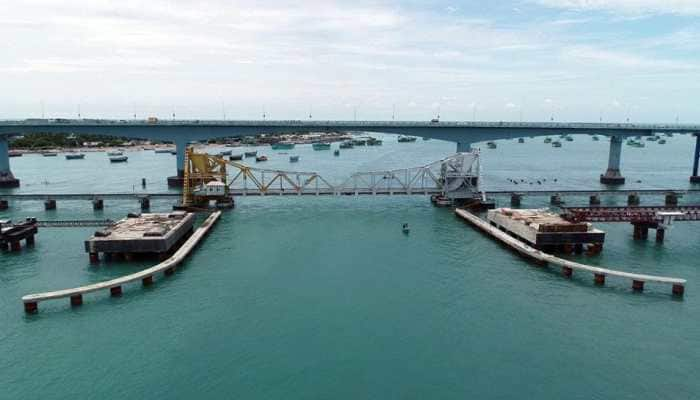Deccan eruptions linked to Mexican Chicxulub occurrence
A new study has addressed the "uncomfortably close" occurrence of the Chicxulub impact in the Yucatan and the most voluminous phase of the Deccan Traps flood basalt eruptions in India.
Trending Photos
)
Washington: A new study has addressed the "uncomfortably close" occurrence of the Chicxulub impact in the Yucatan and the most voluminous phase of the Deccan Traps flood basalt eruptions in India.
Researchers Mark Richards and colleagues argue that the impact likely triggered most of the immense eruptions of lava in India that indeed, this was not a coincidence, but a cause-and-effect relationship.
Knowledge and study of the Deccan Traps eruptions have consistently cast a shadow of doubt on the theory that the Chicxulub impact was the sole cause of the end-Cretaceous mass extinction, most infamous for killing off Earth's dinosaurs.
However, Richards and colleagues write that historical evidence for the triggering of volcanoes by large earthquakes, coupled with a wide range of data, show that the massive outpouring of Deccan lavas are likely to have been triggered by the Chicxulub impact and thus following on as a secondary disaster.
As per Richards, the chances of that occurring at random are minuscule and it's not a very credible coincidence.
Several of the authors visited India in April 2014 to obtain lava samples for dating, and noticed that there are pronounced weathering surfaces, or terraces, marking the onset of the huge Wai subgroup flows.
This geological evidence likely indicates a period of quiescence in Deccan volcanism prior to the Chicxulub impact, which, gave this thing a shake, thus mobilizing a huge amount of magma over a short period of time.
Richards and colleagues write that while the Deccan eruptions probably spewed massive amounts of carbon dioxide and other noxious, climate-modifying gases into the atmosphere, it's still unclear if this contributed to the demise of most of life on Earth at the end of the Age of Dinosaurs.
The study is published online by GSA Bulletin.
Stay informed on all the latest news, real-time breaking news updates, and follow all the important headlines in india news and world News on Zee News.
Live Tv







)
)
)
)
)
)
)
)
)
)
